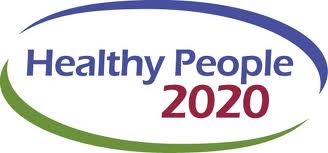Connecticut's Healthy People 2020 Action Project 
DPH Awarded Competitive Grant from DHHS
In May, 2011, the Connecticut Department of Public Health received a small grant award from the U.S. Department of Health and Human Services to implement a “Healthy People 2020 Action Project”. Healthy People is a federal initiative that sets 10-year national goals and objectives for health promotion and disease prevention. Of 49 applicants from state, territorial, and tribal health departments throughout the U.S., only 21 were selected to receive funding.
Project Focus on Genetic Counseling and Testing for Hereditary Cancers
The focus of Connecticut’s project was the new Healthy People 2020 Genomics topic area with its objectives pertaining to hereditary cancer syndromes. This part of the project has been a collaborative effort involving the DPH Genomics, Planning, Workforce Development, and Cancer Control programs, the Connecticut Tumor Registry, and tumor registrars at 31 acute care hospitals in the state.
The 12-month grant, which commenced in June, 2011, supported an initiative to educate health care providers on hereditary cancer syndromes for which national recommendations for genetic counseling and testing exist. The cancer syndromes are hereditary breast and ovarian cancer (HBOC) and Lynch syndromes. Lynch syndrome is a genetic condition that predisposes people to early onset (under age 50) colorectal cancer and other cancers of the digestive tract. Women with Lynch syndrome also have a high risk of cancer of the endometrium (lining of the uterus) and ovaries.
In 2009, Connecticut had the second highest rate of female breast cancer, the sixth highest rate of ovarian cancer, and sixth highest rate of uterine cancer in the nation. Colorectal cancer is the third most common cancer and the second leading cause of cancer deaths in Connecticut.
New Study Highlights Need for Clinician Education and Training
A 2011 healthcare provider survey* by researchers at New York's Mount Sinai School of Medicine documented the need for provider education and training about family health history and genetic counseling and testing to assess cancer risk. Although 77% of the surveyed practitioners collected family histories, less than 2% of them felt qualified to interpret risk. Moreover, while more than half said they referred patients for genetic counseling, less than 15% of them felt confident in their ability to make such referrals.
Cancer Surveillance Data Reported Back to Hospitals
In Connecticut's project, targeted practitioners at acute care hospitals received reports on numbers of breast, endometrial, ovarian, and colorectal cancers diagnosed at their facilities in patients who may be at increased risk of HBOC or Lynch syndrome. Data were provided by the Connecticut Tumor Registry. Hospitals are mandated to report diagnosed cancers to the Tumor Registry, but this was the first time that these types of data were reported back to the hospitals.
Hospital Practitioners Received Education and Training on "Evidence-based Cancer Genomics Best Practices"
The providers also received educational materials about hereditary cancers and copies of evidence-based “best practice” recommendations for genetic testing. The recommendations come from two federally supported, independent advisory panels and are intended to help practitioners and patients make decisions about appropriate health care.
Grand Rounds Training Provided
Along with the educational materials, staff at each hospital was offered the services of a Certified Genetic Counselor for a Grand Rounds training session on prevention and early detection of cancer and the appropriate use of genetics counseling services and tests. Ultimately staff at 70% of the hospitals received a training session.
In addition, project directors from 14 sites throughout Connecticut where free or low-cost screenings for breast, cervical, and colorectal cancers are provided, received the information packets and were provided a training session.
Feedback surveys were collected at each of the Grand Round presentations, with the data helping to identify ongoing areas of need and to inform future activities. One of these trainings has been recorded and made available to the public online via TRAIN CT at: https://ct.train.org.
1,000 Connecticut Physicians and Surgeons Received Educational Materials and Guidelines
The grant also funded the production and distribution of cancer genomics educational materials and best practice guidelines to nearly 1,000 Connecticut physicians specializing in obstetrics/gynecology and gastroenterology, who are most likely to screen for cancer and identify individuals with family histories of cancer. The packet included a unique tool developed by DPH for healthcare providers – a slide chart containing current, evidence-based referral criteria for HBOC and Lynch syndromes.
Connecticut's Action Project is expected to help health care providers improve their referral practices and patient care, and ultimately lead to better health outcomes.
__________
* Sussner, K.M., L. Jandorf, and H.B. Valdimarsdottir. Educational needs about cancer family history and genetic
counseling for cancer risk among frontline healthcare clinicians in New York city. Genetics in Medicine, May 6, 2011.
DOI: 10.1097/GIM.0b013e31821afc8e (Epub ahead of print).


